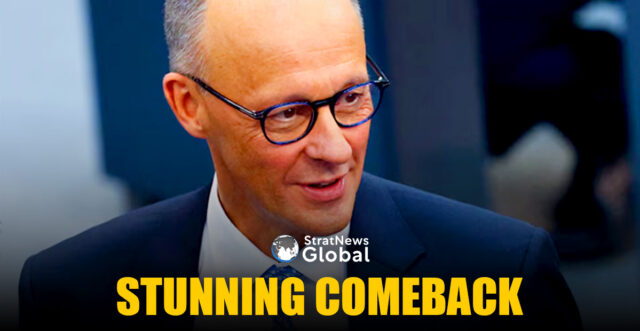German conservative leader Friedrich Merz was elected chancellor by parliament on Tuesday following a second round of voting, after his new alliance with the centre-left Social Democrats faced an unexpected defeat in the initial ballot.
Merz’s failure to win parliamentary backing at the first time of asking was a first for post-war Germany and an embarrassment for a man who had promised to revive economic growth at a time of global turbulence.
His CDU/CSU alliance won February’s federal election and secured a coalition deal with the centre-left Social Democrats.
Their deal has mapped out plans to revive growth, such as reducing corporate taxes and lowering energy prices. It is also promising strong support for Ukraine and higher military spending.
Merz, 69, who began his political career as a European lawmaker in 1989, has yet to demonstrate his leadership abilities in the political executive as his appointment marks his first time holding a government office.
Only one minister from the previous government will retain his position, Defence Minister Boris Pistorius. The rest of Merz’s cabinet are new appointees, many with private-sector experience.
Coalition’s Popularity Already Falling
Merz’s conservatives won February’s election with 28.5% of the vote, leaving them in need of at least one partner to form a majority.
On Monday, they signed a coalition deal with the SPD, which won just 16.4%. The two parties have vowed to revive growth in an economy facing its third year of downturn amid a global trade war sparked by U.S. President Donald Trump’s sweeping import tariffs.
They have also promised to dramatically boost defence spending as the U.S. commitment to the NATO alliance weakens.
But both have lost support since their already dismal performances in February, especially the conservatives, due in part to frustration with Merz’s decision to loosen borrowing limits, despite campaign promises of fiscal rectitude.
“The failed vote is clearly a sign that not everyone in the CDU agrees with the fiscal U-turn,” said Carsten Brzeski, Global Head of Macro at ING Research.
Germany has not had a majority government since the collapse of Olaf Scholz’s SPD-led three-way coalition last November.
The abrasive and erratic style of Merz, who has never held government office, has also failed to convince some that he is chancellor material.
Philipp Koeker, political scientist at the University of Hanover, said he expected Merz to be elected in the second round, but added: “The relationship between the parties will be severely damaged because of this and (it will) exacerbate the conflicts that are already bubbling beneath the surface.”
(With inputs from Reuters)





